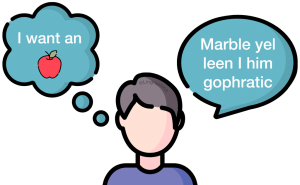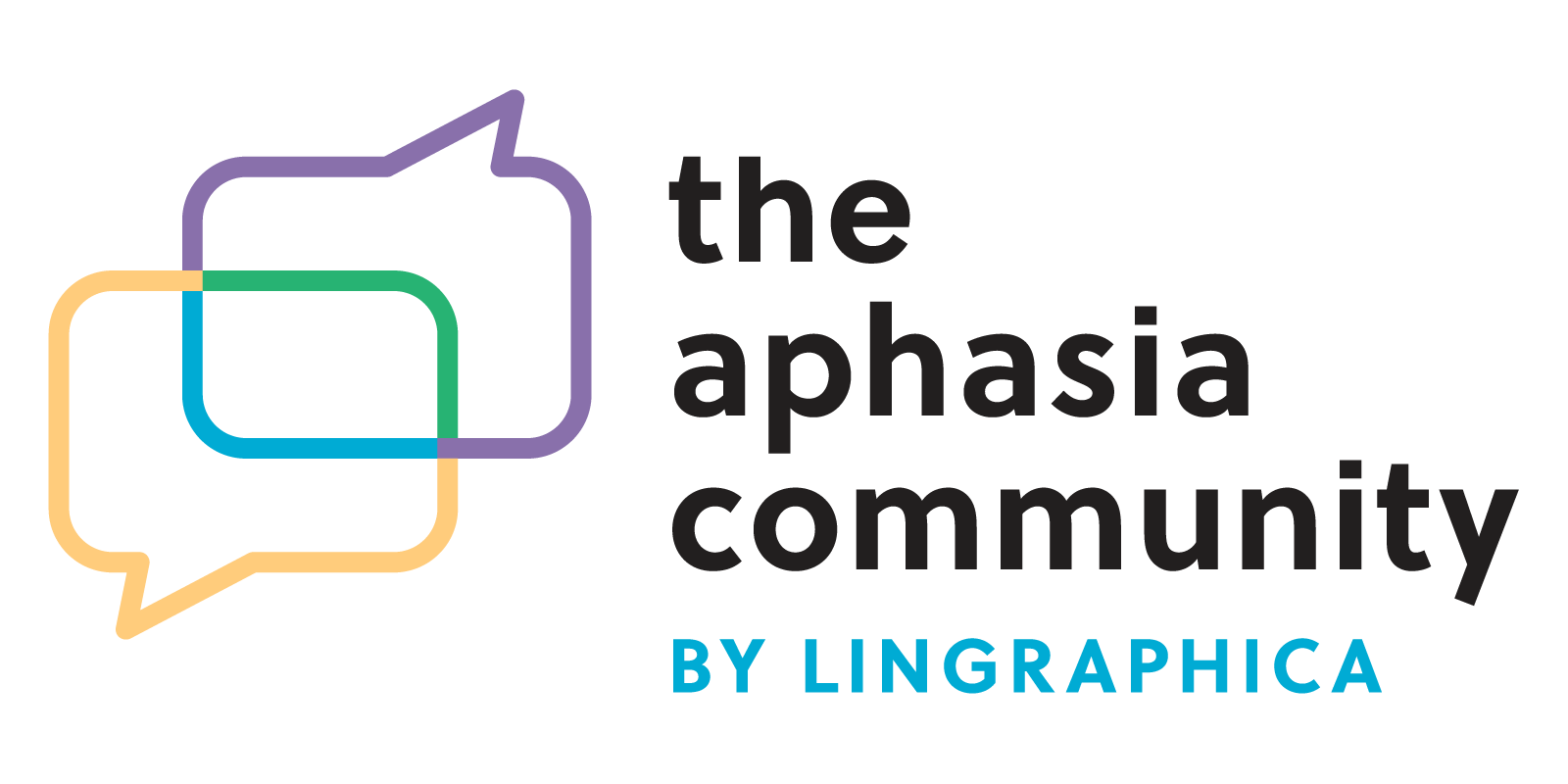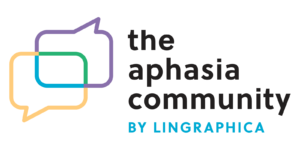Broca's Expressive Aphasia
Broca’s aphasia is a form of aphasia in which the person knows what they want to say but is unable to produce the words or sentence. It is also known as non-fluent aphasia and expressive aphasia, and severity can range from mild to severe. People with Broca’s aphasia are typically aware of their communication difficulties.
Broca’s aphasia is due to damage to Broca’s area in the left hemisphere of the brain, named after French scientist Paul Broca.
Broca’s aphasia is often described as having the words “on the tip of your tongue.” It is called non-fluent aphasia because speech is effortful and involves starts and stops. Another defining feature is that if sentences are produced, they often have incorrect syntax, or word order and grammar.
Comprehension, or reading and listening, are less affected than speech and written expression. Simple sentences are easiest to understand. For instance, “John likes ice cream” is easier to understand than “Ice cream is a food that is liked by John.” People with Broca’s aphasia are often able to understand most of what is said to them, but they have trouble responding.
Someone with Broca’s aphasia can also experience less obvious communication impairments. This can include yes/no confusion, or saying yes when they really mean no. Using the correct pronouns can also be difficult and the individual might use “he” to refer to a woman.
Speech therapy can be very helpful for people with Broca’s aphasia. People with Broca’s aphasia can improve in their communication abilities for a long time following a stroke, especially with therapy and support.
Characteristics of Broca’s Aphasia
- Speech can be very difficult and limited to a few words
- Small words like prepositions, articles and conjunctions are especially difficult and often left out
- Sentences can be disjointed and/or scrambled
- Word substitutions can occur, such as “pen” instead of “pencil,” or “week” instead of “month”
- Speech can be laborious and halting
- Writing abilities often mirror speech.
The Most Common Types of Aphasia

Anomic Aphasia
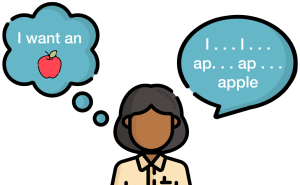
Broca's Expressive Aphasia
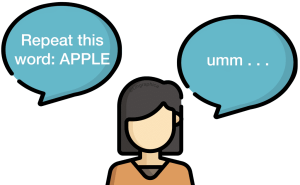
Conduction Aphasia
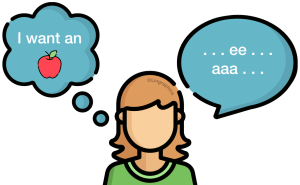
Global Aphasia

Primary Progressive Aphasia

Mixed Transcortical Aphasia
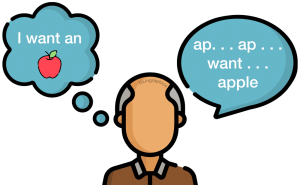
Transcortical Motor Aphasia
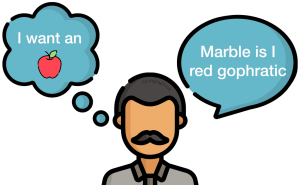
Transcortical Sensory Aphasia
